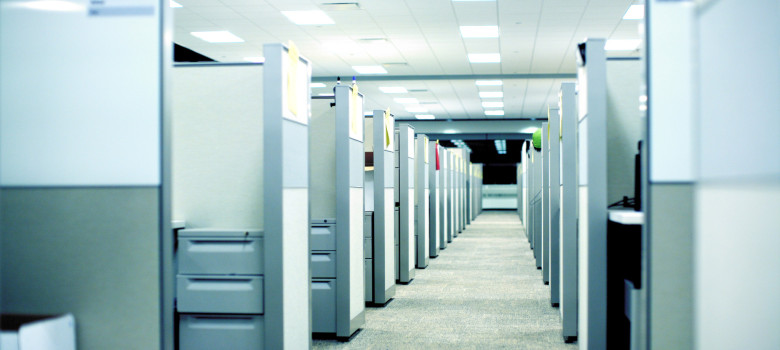
Offices can be huge energy sappers – lots of people working with all that electronic equipment can soon send your bills soaring. Here we are going to take a look at some of the things you can do to make sure your company is minimising their energy bill. Some are simple and quick to implement, others might take a little longer to pay back, but you can decide for yourself which ones are worth implementing.
Behaviours make a big difference
Before you even start looking at material changes to your office, the first thing you should do is take a look at some behavioural changes that could help cut the amount of energy you are using. Having someone responsible for turning things off when not in use for example, or asking sure you utilise blinds in summer to reduce solar gain, instead of just turning on the air conditioning at the first opportunity.
In our experience, many office businesses have very little knowledge of their energy bills – they are just considered a fixed cost that leaves their account every month. The key to getting office energy usage down is for the management to understand where the money is going, and to put procedures in place to keep costs down.
Implementing an energy management system for your office equipment is really important too. Ensuring all computers are set to turn off after a period of inactivity for example is a really good way to save money.
Lighting in the office
Lights are one of the key areas that cost offices a lot of money, and they are so easy to switch to energy efficient substitutes that you will kick yourself that you haven’t done anything sooner. Many offices will currently use old T12 or T8 tube lighting, along with manual switching. Your electrician will be able to switch these to T5 or LED tube bulbs very easily. Further, you should consider installing more intelligent switching systems, which turn the lighting off when it isn’t being used for further savings. Simple changes that will cost you a few thousand pounds at most for a typical office floor, and the payback is in the range of months rather than years typically.
Heating in the office
Where heating controls in the home are a small factor in overall efficiency, with larger office spaces, controls and how you use them mean much more. Overheating your office by just a few degrees could mean thousands of pounds a year in wasted energy. There are lots of things you could consider with respect to heating controls – and it will be worth getting a heating expert in to the office to work out the best method. Things you may be recommended include thermostatic valves for radiators, room by room heating controls or weather compensators.

Air Conditioning
Most offices these days have some form of air conditioning system. This can be a big cost in terms of energy usage. In fact, many offices have what is known as a split system – this means that natural ventilation (opening windows or using the building to create draughts) is combined with mechanical ventilation (wall mounted air conditioning units for example). This is really bad news because each system will be fighting each other, creating higher energy bills as a result. The ideal scenario is either fully natural ventilation systems or a proper air conditioning system.
Of course, this is an area that can cost a fotune to get right, and there are lots of little things that can make cooling much cheaper in your building. Controls are key in keeping your air con bill low, but also understanding things like solar gain and natural ventilation can also go a long way to keeping air conditioning affordable.
Solar ideal for office businesses
Solar power is now a fantastic option for business. As you are probably aware, solar power can only really be utilised during daylight hours, and so for domestic purposes it can be difficult to utilise the power when you are out at work. For businesses however, solar is perfect, because most businesses use the vast amount of their energy during the day – especially offices.
Not only that, but there are a number of incentive schemes to help pay for solar. There is the Renewable Heat Incentive which pays money to your business each quarter for producing your own heat. Further, solar can be installed as part of the Enhanced Capital Allowance scheme, so you will get a further discount on the works.
Energy efficiency in the office really does make sense, and there are some good savings to be made if you take the necessary steps.
Think we missed something? Do you have a different opinion?
Comment below to get your voice heard…












No Comments yet! Be the first one.